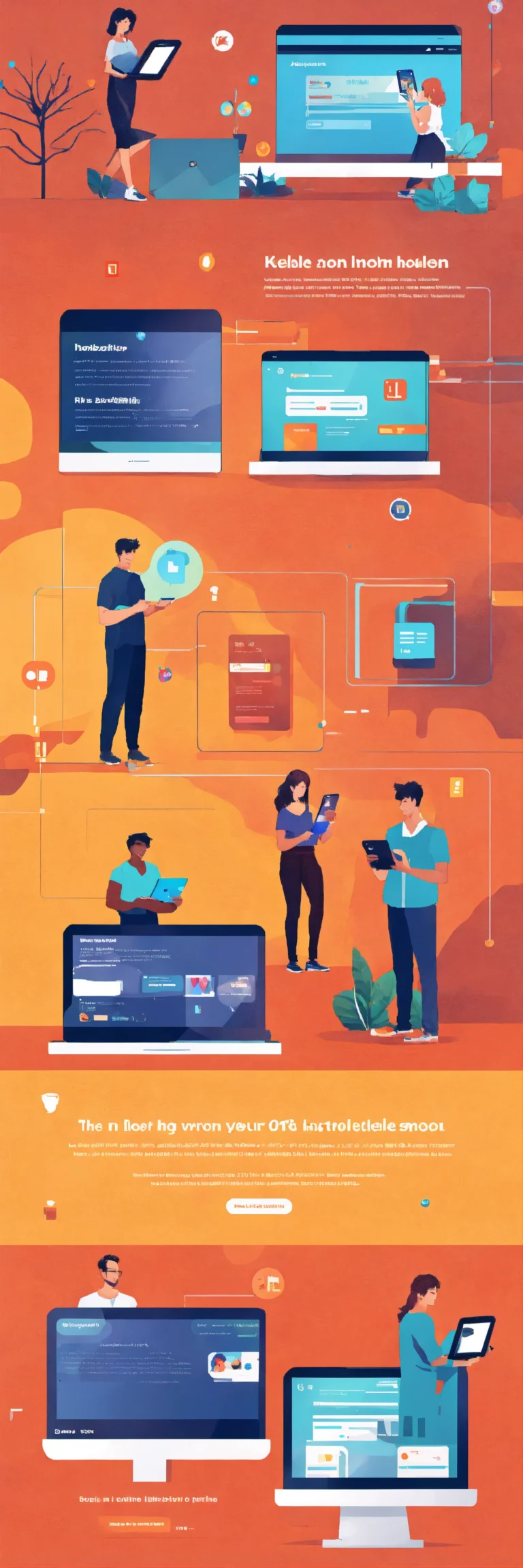Information is the cornerstone of successful business strategies. By effectively extracting key insights from vast amounts of data, you can optimize operations, identify trends, and make informed decisions that propel your business forward. In this article, you will discover how harnessing the power of information extraction can revolutionize your business and give you a competitive edge in today’s fast-paced market.
Key Takeaways:
- Automating data extraction: Information extraction technology can automate the process of extracting valuable data from various sources, saving time and reducing errors.
- Improving decision-making: By extracting relevant insights and data from different sources, businesses can make more informed decisions and enhance their strategic planning.
- Enhancing customer experience: Utilizing information extraction tools can help businesses better understand customer needs and preferences, leading to more personalized and targeted marketing strategies.
The Power of Information Extraction
Unlocking Hidden Insights
For businesses, information extraction is like having a superpower that allows you to uncover valuable insights hidden within data. By implementing advanced algorithms and tools, you can extract meaningful information from unstructured data sources such as social media, customer feedback, and industry reports. This knowledge can help you make informed decisions, identify market trends, and predict customer behavior.
The Competitive Edge
To stay ahead in today’s cutthroat business environment, you need every advantage you can get. Leveraging information extraction gives you the competitive edge by providing real-time access to critical data. By analyzing and interpreting this information faster and more accurately than your competitors, you can make strategic moves that drive growth, enhance customer satisfaction, and increase profitability.
Plus, with the ability to extract and process data at scale, you can automate manual tasks, streamline operations, and free up resources for innovation and business development. This level of efficiency and agility is crucial for keeping pace with evolving market demands and staying relevant in the digital age.
What is Information Extraction?
Definition and Scope
One of the key components of information extraction is analyzing unstructured data and converting it into a structured format that can be easily searched and analyzed. This process involves identifying and extracting relevant information from text documents, emails, social media posts, and other sources.
Types of Information Extraction
One of the types of information extraction includes Named Entity Recognition, which involves identifying and categorizing entities mentioned in text such as people, organizations, and locations. Another type is Relation Extraction, where the system identifies relationships between entities. Event Extraction focuses on detecting events or actions described in text. Template Filling involves extracting specific information to fill predefined templates. Keyword Extraction identifies and pulls out important words or phrases from text for analysis.
| Named Entity Recognition | Identifying entities in text |
| Relation Extraction | Identifying relationships between entities |
| Event Extraction | Detecting events or actions |
| Template Filling | Extracting information to fill templates |
| Keyword Extraction | Identifying important words or phrases |
Types of Information Extraction technologies are crucial for businesses looking to streamline processes and gain insights from vast amounts of unstructured data. For example, Named Entity Recognition can help identify trends or patterns related to customer behavior, while Relation Extraction can uncover connections between different entities in a dataset. After implementing Information Extraction techniques, your business can extract valuable insights, improve decision-making, and enhance overall efficiency.
Benefits of Information Extraction
Improved Decision Making
Keep ahead of the competition by using information extraction to improve your decision-making processes. By extracting key data from various sources, you can analyze trends, predict outcomes, and make informed choices that drive your business forward.
Enhanced Customer Insights
Improved customer insights are necessary for understanding your target audience and tailoring your products or services to their needs. With information extraction, you can gather valuable data on customer preferences, behaviors, and feedback, allowing you to create more personalized and targeted marketing strategies.
Plus, with enhanced customer insights, you can improve customer satisfaction, loyalty, and retention rates, ultimately boosting your sales and revenue.
Increased Efficiency
Customer satisfaction is key to the success of any business. By utilizing information extraction technology, you can automate time-consuming tasks such as data entry, analysis, and reporting. This allows you to focus your efforts on more strategic initiatives that drive growth and profitability.
It also helps streamline workflows, eliminate manual errors, and ensure that you have accurate and up-to-date information at your fingertips, making your operations more efficient and effective.
Applications of Information Extraction
Market Research and Analysis
Research shows that information extraction can revolutionize your market research and analysis efforts. By extracting data from various sources such as customer reviews, social media, and competitor websites, you can gain valuable insights into market trends, customer preferences, and competitor strategies. This information can help you make more informed business decisions and stay ahead of the competition.
Sentiment Analysis and Feedback
Extraction of sentiment from customer feedback and reviews can provide you with invaluable insights into how your customers perceive your products or services. By using information extraction tools to analyze sentiment, you can identify patterns, trends, and areas for improvement. This feedback can help you tailor your offerings to better meet customer needs and enhance overall satisfaction.
Automation and Process Optimization
Sentiment analysis can also be used to automate and optimize various business processes. By extracting key information from incoming emails, customer inquiries, or social media messages, you can automatically categorize, prioritize, and respond to queries more efficiently. This not only saves time and resources but also ensures that customer issues are addressed promptly and effectively.
Challenges and Limitations
Data Quality and Accuracy
For businesses looking to boost their efficiency through information extraction, a key challenge is ensuring the quality and accuracy of the data being extracted. Incorrect or outdated information can lead to poor decision-making and ultimately harm your business operations.
Information Overload and Filtering
Limitations in information extraction also include dealing with information overload and the need for effective filtering mechanisms. With the vast amount of data available, it can be challenging to sift through and extract only the most relevant and valuable insights for your business.
Accuracy: While information extraction tools can help streamline processes and provide valuable insights, it’s crucial to remember that they are not foolproof. Businesses should always verify the extracted information to ensure its accuracy and relevance before making critical decisions.
Ethical Considerations
With the use of information extraction tools, businesses should also consider the ethical implications of extracting data, especially when it comes to consumer privacy and data security. Ensuring compliance with regulations and respecting user privacy should be top priorities when leveraging information extraction technologies.
Best Practices for Implementation
Identifying Relevant Data Sources
Sources: Not all data sources are created equal when it comes to information extraction for your business. It’s crucial to identify the most relevant and reliable sources that will provide the data you need to make informed decisions.
Developing Effective Extraction Strategies
Developing: As far as extracting information, a one-size-fits-all approach won’t cut it. You need to develop tailored strategies that take into account the specific data sources and the type of information you are looking to extract.
Best practices include defining clear objectives for your extraction process, understanding the structure of the data you are working with, and regularly refining and updating your strategies to ensure accuracy and efficiency.
Integrating with Existing Systems
Strategies: Integrating information extraction with your existing systems can enhance data quality, streamline processes, and improve overall business intelligence. By seamlessly incorporating extracted data into your existing workflows, you can make more informed decisions and drive business growth.
Effective integration also involves ensuring compatibility between different systems, prioritizing data security and privacy, and providing training for your team to utilize the extracted information effectively.
To wrap up
Following this educational journey on boosting your business with information extraction, you now understand the power of extracting valuable insights from data to make informed decisions. Be mindful of, by implementing information extraction tools and techniques, you can streamline processes, uncover trends, and gain a competitive edge in today’s data-driven world. Keep exploring and leveraging the potential of information extraction to propel your business forward!
FAQ
Q: What is Information Extraction and how can it boost business performance?
A: Information Extraction is the process of automatically extracting structured or unstructured data from text sources. By utilizing information extraction tools, businesses can gain valuable insights from large volumes of data, leading to informed decision-making and improved operational efficiency, thereby boosting business performance.
Q: How can Information Extraction help businesses in market analysis?
A: Information Extraction can help businesses in market analysis by extracting key data points such as customer preferences, competitor strategies, and market trends from various sources like online reviews, social media, and market reports. Analyzing this information can provide businesses with valuable insights to understand market dynamics and make informed strategic decisions.
What are some common applications of Information Extraction in business processes?
A: Some common applications of Information Extraction in business processes include sentiment analysis of customer feedback to understand customer satisfaction levels, entity extraction to identify and categorize key entities mentioned in text data, and event extraction to track important events or developments relevant to the business. These applications can streamline workflows, enhance customer experiences, and drive business growth.





